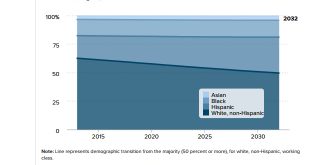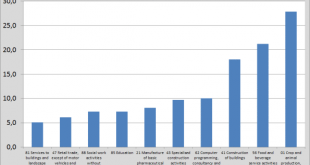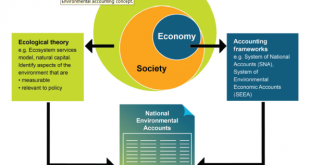from Jayati Ghosh Even before the results of the UK referendum, the European Union was facing a crisis of popular legitimacy. The result, especially in England and Wales, was certainly driven by the fear of more immigration, irresponsibly whipped up by xenophobic right-wing leaders who now appear uncertain themselves of what to do with the outcome. But it was as much a cry of pain and protest from working communities that have been damaged and hollowed out by three decades of neoliberal...
Read More »Commodification of science and technology
from Maria Alejandra Madi At the beginning of XX century, Joseph Schumpeter developed the concept of creative destruction to characterize the waves of development based on clusters of innovations -both technical and institutional. In the last decades, these waves have included petrochemical products, automobiles, information technologies and biotechnologies, especially genetic modification. Looking back, throughout the postwar era in advanced Western societies, scientific research and...
Read More »Class struggles in America (6 graphs)
from David Ruccio Almost five years ago, I suggested we start calling things by their correct names. Take the working-class—people who are forced to have the freedom to sell their labor power for a wage. We refer to them as members of the middle-class (which needs to be “rebuilt“) and working families (who need to be helped) or, now as workers’ wages stagnate and the real value of the minimum wage declines, as the “feral underclass” (especially in theUK, in the aftermath of the...
Read More »Job growth in Ireland. Meuhhh…
According to the Irish Statistical Office, economic growth in 2015 was an unbelievable 26%. At the same time, employment increased with 2,4% or 151.000 jobs. A brisk but not exceptional pace and totally at odds with the 26% economic growth estimate. Subsectoral data underscore this anomaly: job growth was located in agriculture, tourism (food and beverage service activities) and construction. And to a much smaller extent in the computer, pharmaceutical and leasing sectors which showed,...
Read More »Capital links. Nature, France and a Marxist DSGE model
1) What is capital? The national accounts define capital as a monetary variable. Many people however also talk about ‘natural capital’, ‘The stock of living and non-living components of the earth that provide a flow of valuable ecosystem goods or services‘. That’s from the Australian Bureau of Meteorology, which has issued a very good report ‘The environmental accounts landscape‘. They may underestimate the extent to which laws and regulations shape ‘capital’. But here’s an interesting...
Read More »Children’s economics
from David Ruccio As I have argued many times on this blog, representations of the economy are produced and disseminated in many different spaces (in addition to academic economics departments) and through many different media (in addition to the usual, mostly mainstream economics textbooks). One example of this proliferation of economic representations is children’s literature. Children are the targets of educators and writers, most of whom (at least these days) are determined to make...
Read More »Is the Trans-Pacific Partnership President Obama’s Vietnam?
from Dean Baker The prospects for the Trans-Pacific Partnership (TPP) are not looking very good right now. Both parties’ presidential candidates have come out against the deal. Donald Trump has placed it at the top of his list of bad trade deals that he wants to stop or reverse. Hillary Clinton had been a supporter as secretary of state, but has since joined the opposition in response to overwhelming pressure from the Democratic base. As a concession to President Obama, the Democratic...
Read More »Escape from Freedom
from Robert Locke Erich Fromm’s 1941 book, with this title, came to mind while watching Donald Trump and his followers in the Cleveland arena. In his book “Fromm distinguishes between ‘freedom from’ (negative freedom) and ‘freedom to’ (positive freedom). The former refers to emancipation from restrictions such as social conventions placed on individuals by other people or institutions. This is the kind of freedom typified by the Existentialism of Sartre, and has often been fought for...
Read More »Don’t believe Wall Street’s scare stories about a financial transactions tax
from Dean Baker Thanks in large part to Sen. Bernie Sanders, the Democratic Party recently added a financial transactions tax to its platform. In his run for the presidential nomination, Sanders had promoted the idea of an FTT — a small sales tax on the purchase of stocks, bonds or other financial assets — as a way to finance free college for everyone, with money left over for infrastructure and other important needs. The idea has currency beyond the platform, too: Rep. Peter A. DeFazio...
Read More »Spot the Crisis
from Peter Radford We hear it all the time. It is a relentless drum beat on the left. Capitalism, we are told, is in crisis. This crisis is manifested in all sorts of ways. We – meaning those of us on the left – need to prepare. We need to counter attack. We need to seize this moment and retrieve from the mess whatever we can. Democracy, in various forms depending on who is writing, is our way forward. Only through democracy can we save society from the crisis in capitalism. Really?...
Read More » Real-World Economics Review
Real-World Economics Review



